Dealing with chargeback disputes can be a frustrating and time-consuming process when you’re not prepared.
Luckily (but also unfortunately at the same time), we have first-hand experience and tips.
Learn the best practices for managing course chargeback disputes with confidence and professionalism.
Table of Contents
- What Is a Course Chargeback?
- Reasons for Online Course Chargebacks
- How Does a Course Chargeback Work?
- Course Chargeback Scams
- Signs Your Online Course Was Stolen
- How to Dispute a Course Chargeback
- How Long Does It Take to Dispute a Chargeback?
- Our Course Chargeback Experience with Thinkific
- Frequently Asked Questions
What Is a Course Chargeback?
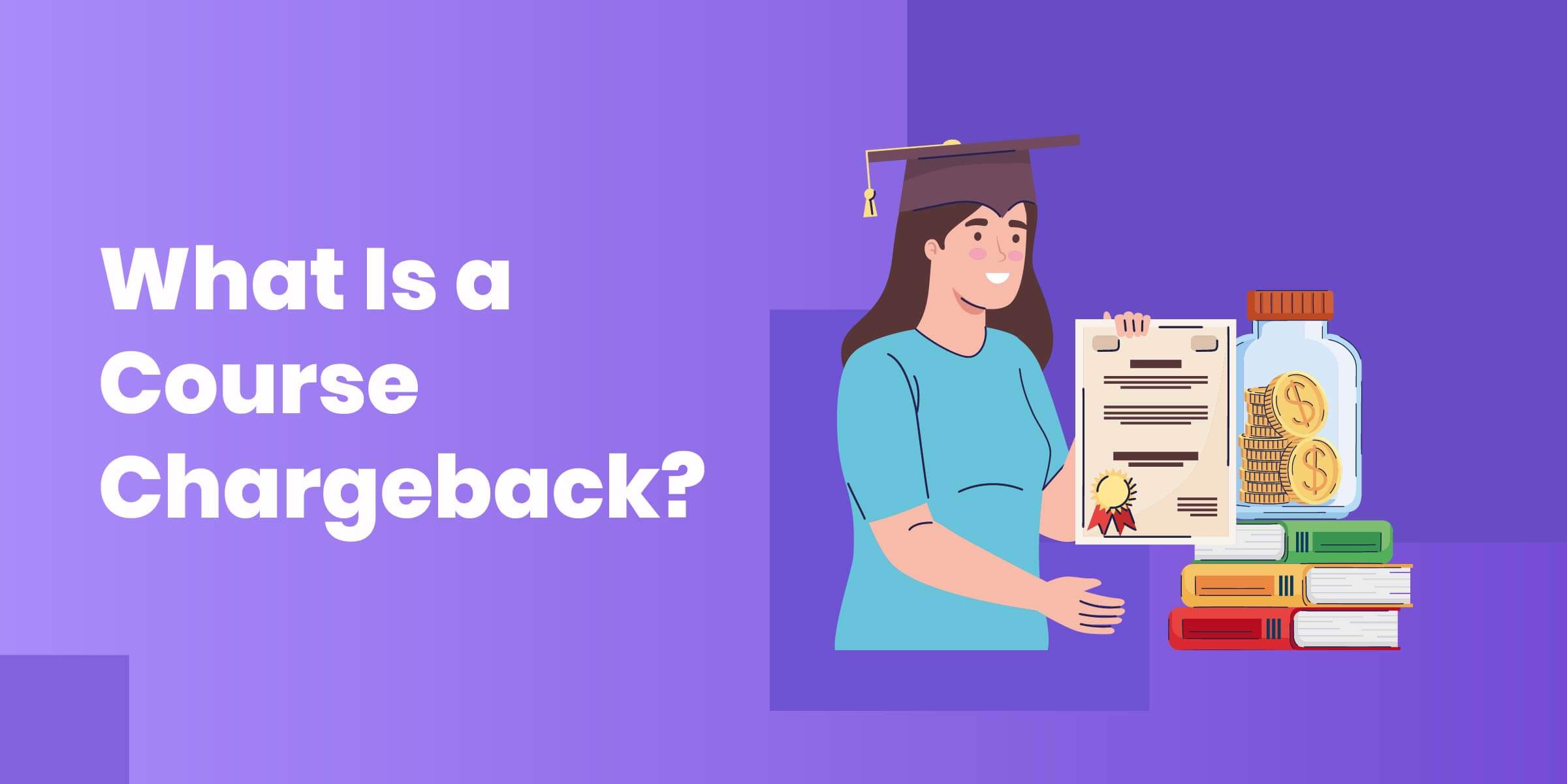

A chargeback occurs when the buyer requests a refunded payment on their debit or credit card. While this may happen for physical products, it can also happen for digital products, including courses.
When someone requests a chargeback for a course they recently purchased or stole from you (more on that later), it’s considered a course chargeback.
Reasons for Online Course Chargebacks
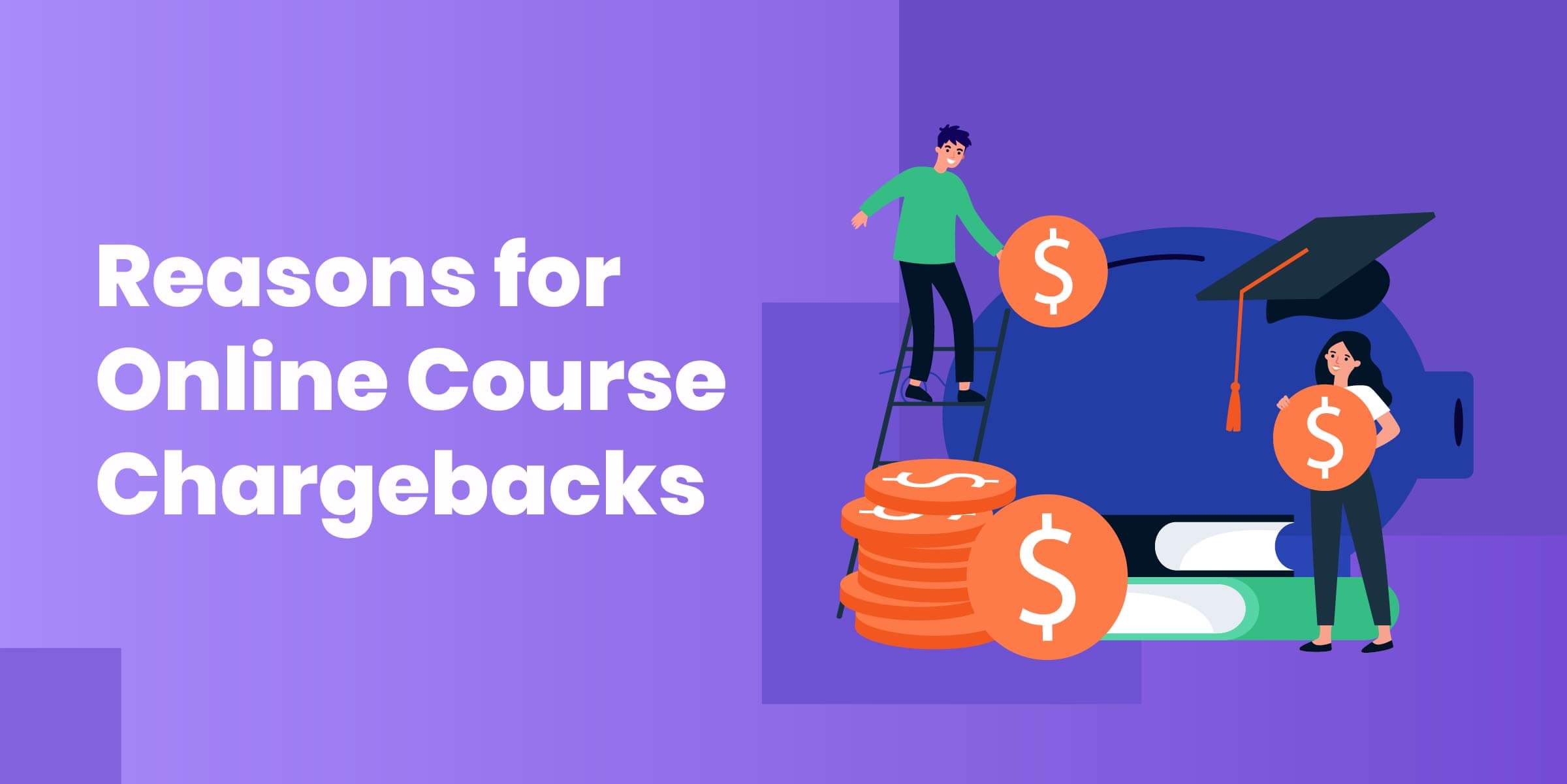

Customer Dissatisfaction
One of the top reasons people request course chargebacks is because they are not happy with the course. If they do not feel that they learned what they set out to learn from the course, they will request a chargeback on grounds of dissatisfaction.
How to avoid this: Avoid click-bait titles that don’t showcase the contents of your course. Ensure that you fairly advertise your course and are honest about what it includes and how it works.
Technical Problems
Technical issues are another reason why someone may ask for a course chargeback. If they couldn’t get the course to work due to technical difficulties, then they will fairly ask for their money back.
How to avoid this: Diligently test out your course before offering it. Do mock-buys and try using it from the buyer’s end. Furthermore, offer the course in various formats, and have a backup. Include instructions for how to download, access, and use the course on various devices. Be willing to help customers get it working.
Fraud
Unfortunately, not every course chargeback is legitimate. A major issue is fraudulent chargebacks.
If someone’s credit card information was stolen, then they may have been charged for things they did not buy, including a course. However, another scenario is that they pirated a course and then requested the chargeback as a scam to steal money.
How Does a Course Chargeback Work?
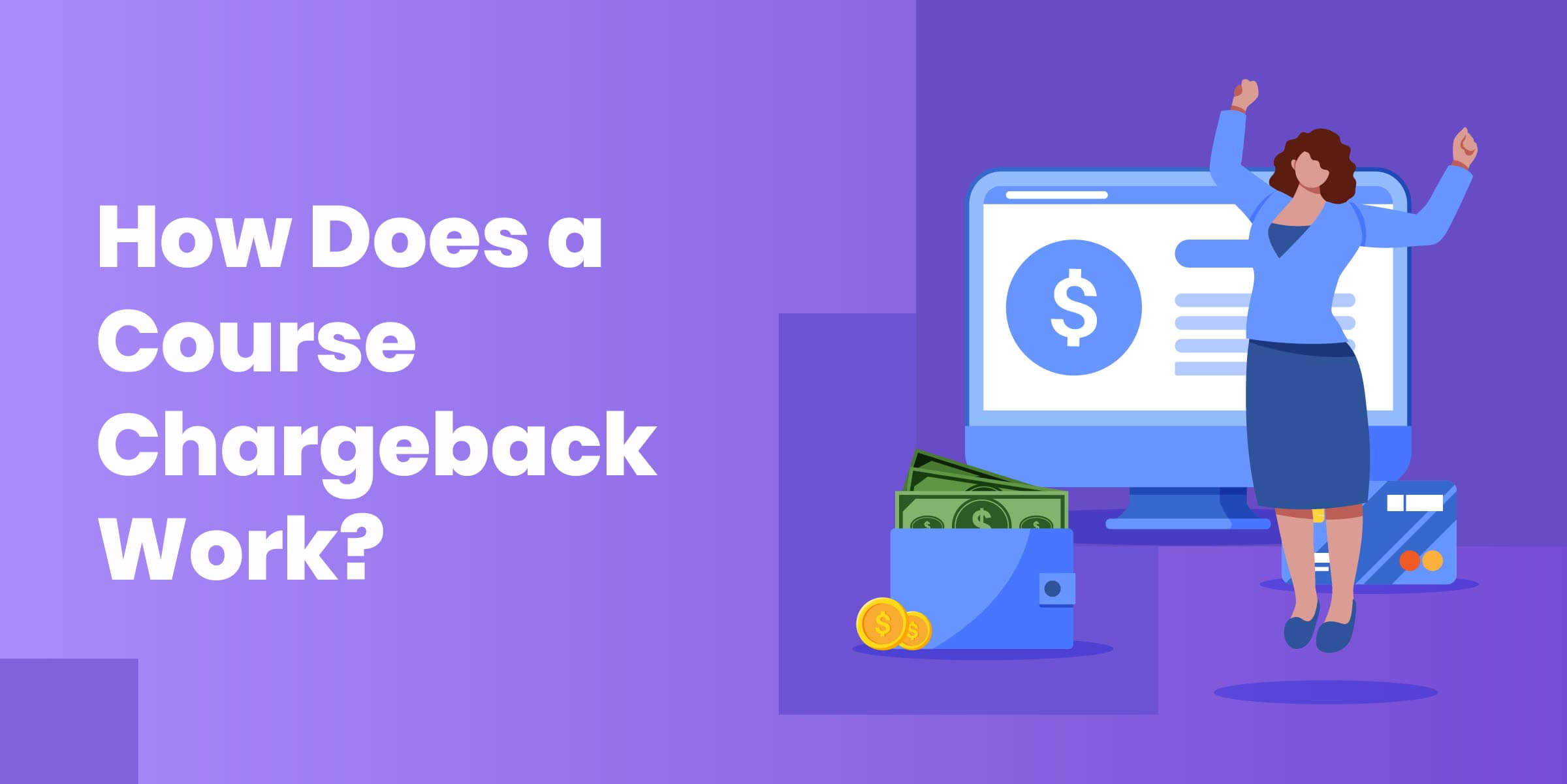

When it comes to digital products, such as software, e-books, or online courses, chargebacks work slightly differently compared to physical goods. A chargeback for a digital product occurs when a customer disputes a transaction made for a digital item and seeks a refund from their financial institution.
- The customer contacts their credit card issuer or bank to raise the issue. They provide relevant details like the transaction date, amount, and reasons for the dispute.
- Unlike physical products, digital products can be easily delivered and replicated, making the chargeback process more complex. To investigate the claim, the financial institution may require additional evidence from the customer, including screenshots, email correspondence, or proof of unsuccessful attempts to resolve the issue with the merchant.
- To protect themselves from chargebacks, merchants of digital products often have refund policies, customer support channels, and mechanisms in place to address customer concerns promptly.
- Ultimately, the resolution of a chargeback for a digital product depends on various factors, including the customer's financial institution's policies, the evidence provided, and any applicable consumer protection laws.
Course Chargeback Scams
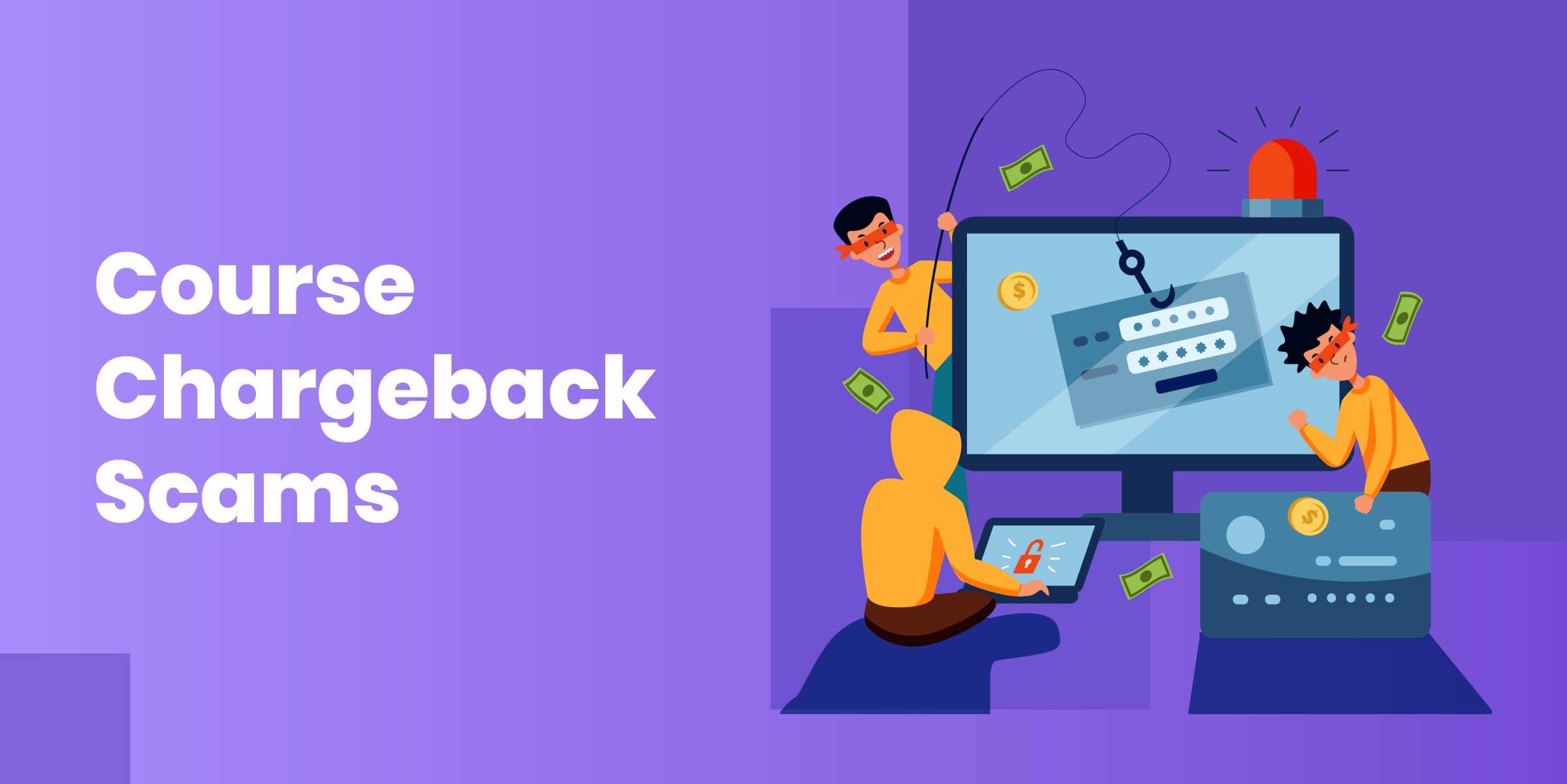

Chargeback scams for online courses are sadly becoming more common. Chargeback requests are not always legitimate, so scams do happen.
We recently had our Thinkific online course stolen. Then, the thief requested a chargeback. When looking at their user information, we noticed it seemed out of place. They supposedly completed a course that includes 4+ hours of video in under an hour.
That was one red flag that alerted us this could be a scam, which it was. Always keep an eye out for fraudulent chargeback behavior on your courses so that you can handle them appropriately.
Signs Your Online Course Was Stolen
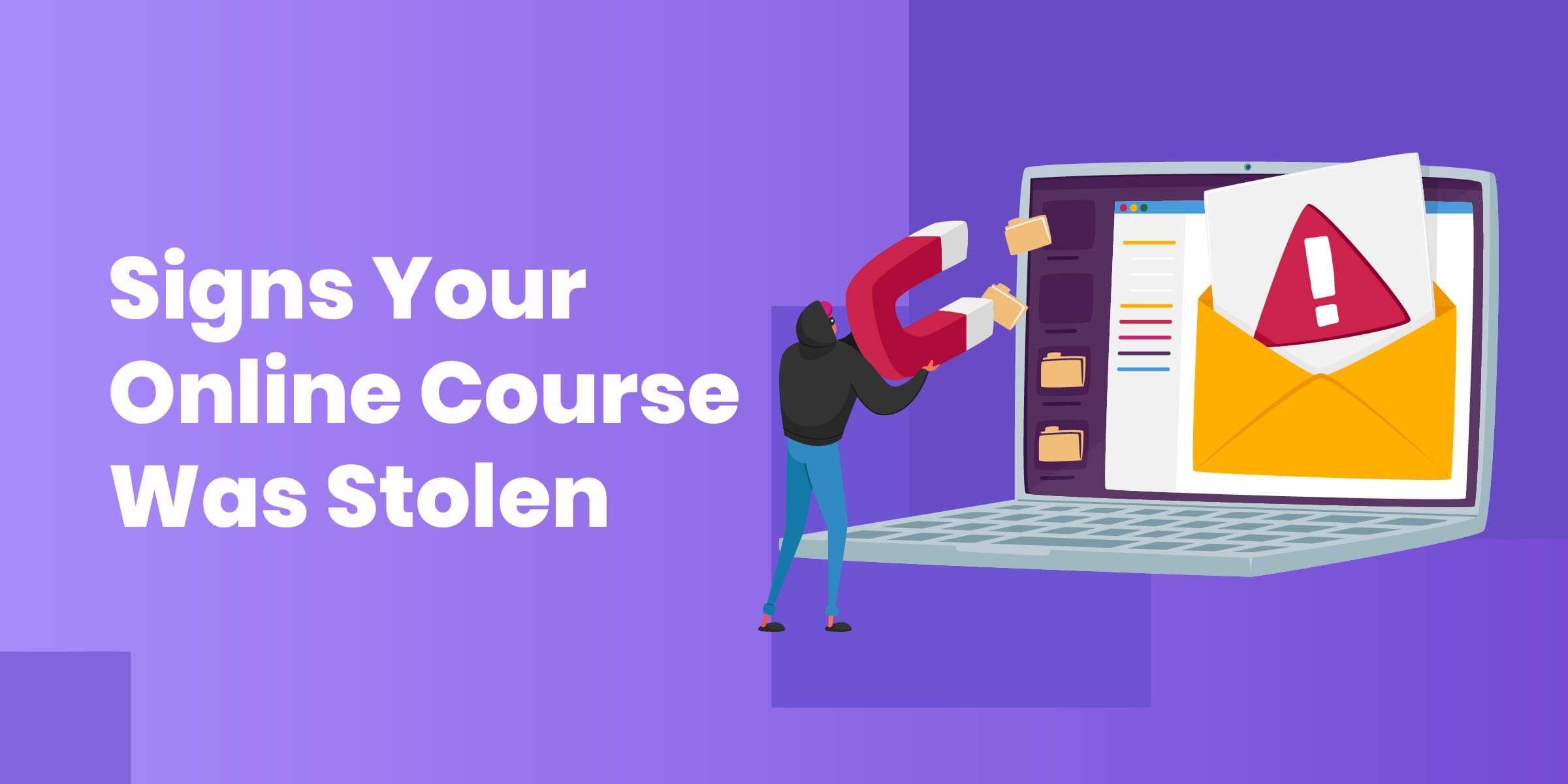

How do you know if your online course was stolen or if a chargeback is legitimate? Here are a few signs to watch for:
Odd User Behavior
If someone completes your course in record time and then requests a chargeback, there’s a good chance they stole it. Keep an eye out for extremely fast course completion, like 1/3rd of the usual time or less.
No Communication from the User
Online course merchants often offer refunds and assistance to ensure a good user experience. With some troubleshooting, we can often help the majority of customers get their money’s worth. Normal customers with an issue reach out with questions or complaints before filing a chargeback. If you’ve never heard from them and then see a chargeback request, it may be fraudulent.
No Response from the User
One of the most extreme signs is not getting a response from the user. It’s highly suspicious if the user does not respond after you try to reach out about the chargeback and offer solutions.
If you suspect your course was stolen, don’t panic. We’ve dealt with this before and created this guide for what to do when your course is stolen to help. You can also read how to file a DMCA takedown if needed.
Eliminate Pirated Copies of Your Course
Our course was stolen! Someone else was making money off of our hard work. So, we found an anti-piracy expert to reclaim our lost rankings and stop unauthorized copies. Now you can work with him too.
- Avoid lost revenue when others monetize YOUR content
- Stop brand damage when your name is used on shady websites
- Prevent pirated copies from appearing above you in search results
How to Dispute a Course Chargeback
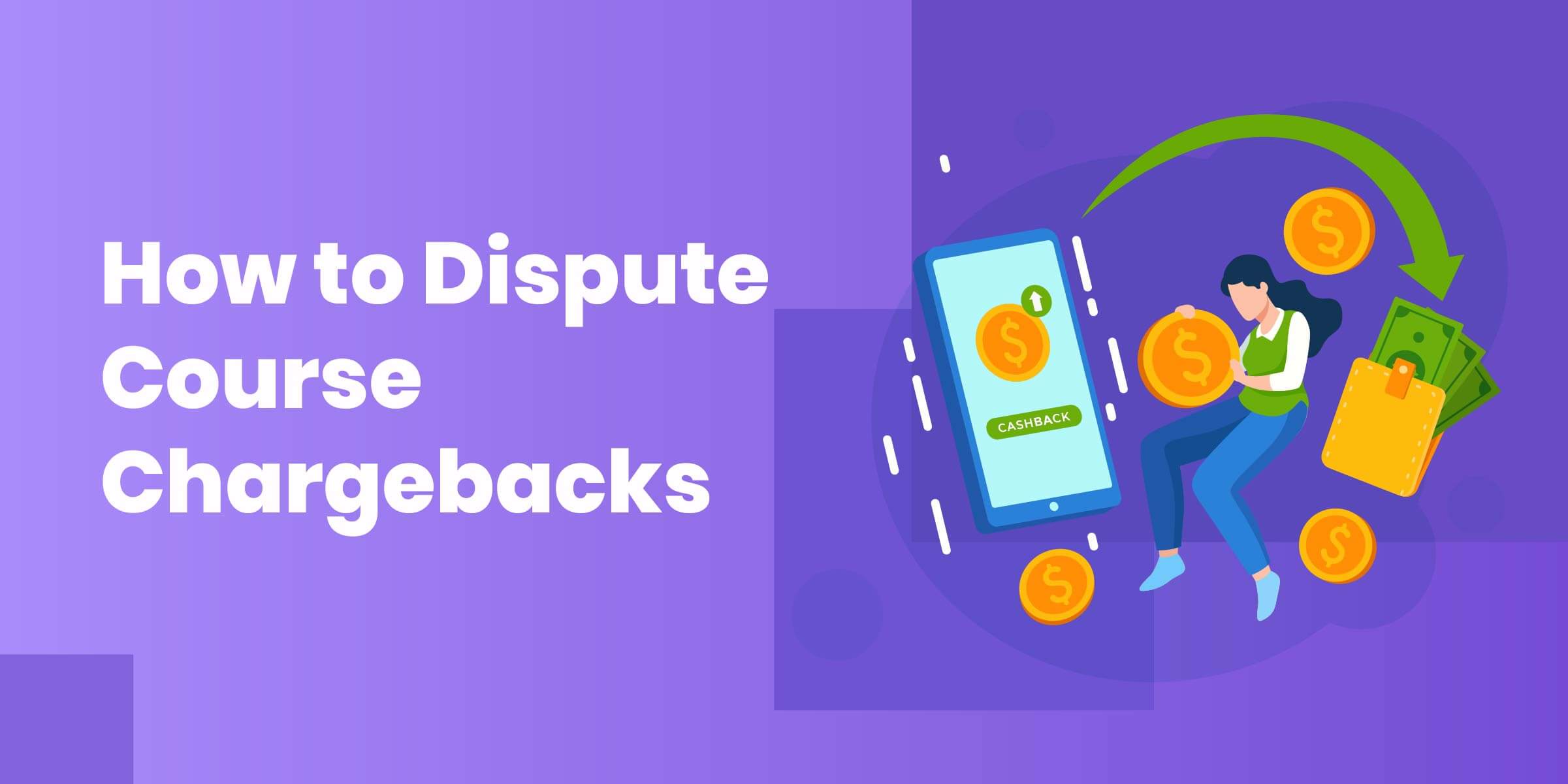

Properly disputing a chargeback can help you win the case and retain payment. Here’s a step-by-step guide for how to dispute a chargeback for an online course:
Collect Evidence
Gather and organize all of the evidence you have to showcase your point of view for the chargeback. Items to collect include:
- Transaction details
- Customer contact information
- Course details
- Any correspondence between you and the customer
Act Quickly
Typically, there’s only a short window to respond to a chargeback. Most often, you have only 7-10 days to respond after getting the notification. Know the deadlines for sending in your documents and appeals. If you miss the deadline, then you’ll lose the chargeback case automatically.
Write a Rebuttal Letter
After submitting your chargeback dispute documents, you must present a chargeback rebuttal letter. This letter should explain why you do not feel the course chargeback is warranted.
Before creating the letter, contact the back to start the chargeback dispute. Submit the rebuttal letter alongside the evidence.
After submitting everything, all you can do is wait for the credit card issuer to make a decision.
How Long Does It Take to Dispute a Chargeback?
Appealing a chargeback can take some time. While the due date may only be a little over a week, the entire process often takes between 30 and 90 days. If the case goes to arbitration, it may take even longer. When our course was stolen, it took around six to eight weeks to resolve the chargeback dispute.
Our Course Chargeback Experience with Thinkific


Fighting a course chargeback may be a scary thought, especially when fraud is involved. While it’s not something any of us want to deal with, it is possible to win a course chargeback dispute. Working with the right course platform can make all the difference.
Our online course that was built in Thinkific was recently pirated. The party that stole our course requested a chargeback, and we saw they completed the entire course (with four hours of video) in under an hour.
After we realized this, we reached out to Thinkific [review]. We provided a copy of the email we sent the user, and documented that the user never responded. Thinkific handled the situation very professionally. They attempted their own outreach, further demonstrating the suspicious nature of the user. Then, Thinkific took care of the chargeback dispute, handling the dispute with the person’s bank.
Frequently Asked Questions
Why did someone request a chargeback for my course?
A user may request a course chargeback if they experienced technical difficulties, were unsatisfied with the course, or for fraudulent activities. Some chargebacks are authentic, but others may be the result of fraud, where someone pirates the course and then tries to get a chargeback to steal money.
Are chargebacks always legitimate?
No, chargebacks are not always legitimate. While some may be, other online course chargebacks may come from someone who stole access to the course and is trying to make money from the chargeback.
What is a course chargeback scam?
A course chargeback scam happens when someone who did not purchase the course tries to file a chargeback to get money credited to them for the course. They use this method to steal money from the course creator.
How do I know if my online course was stolen?
One way to identify if your course was stolen is to look for unauthorized copies of it on other websites. Google search your course and see if any pirated copies come up.
Do merchants ever win online course chargeback disputes?
Yes, merchants can win online course chargeback disputes if they follow the chargeback dispute process and stick to the required deadlines.
Can I dispute a chargeback?
Yes, you can dispute a chargeback. Even so, try to reach out to the customer directly first to see if you can resolve the issue without a chargeback.
How do you win a chargeback dispute on a course?
A few tips to help you win a chargeback dispute on a course include:
- Know all deadlines for the chargeback dispute
- Collect evidence about the user, product, and communication
- Write a rebuttal letter






















